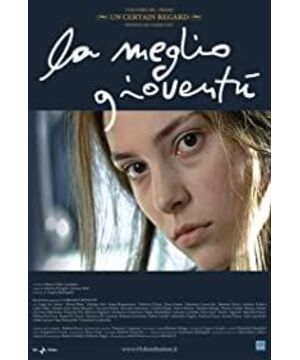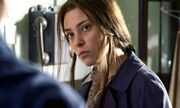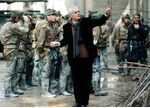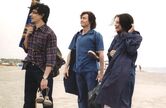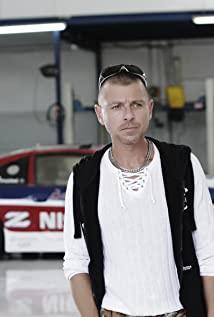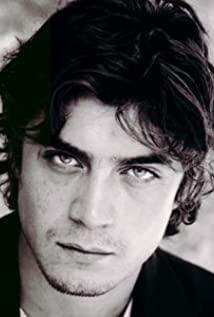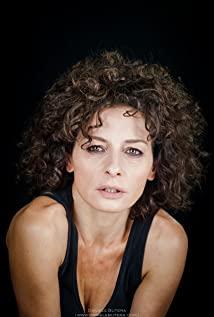It was a six hours long Italian movie. It was shown in a small theatre in SF's Richmond district, very close to Pacific Ocean. I knew nothing about the movie, besides its length, before went in the theatre. I went because Gui thought it was worthy. I always trust Gui's taste in movies. We were well-prepared, carried a small shopping bag full of various healthy soft drinks: chocolate soy milk, mango juice, and water, cookies, and chocolate, plus a small pillow for Gui's back. It felt like a school field trip. Since the movie was shown in two parts with half an hour intermission in between. We only bought tickets to see the first half first. Left our option open in case we wanted to give up on the 2nd half. We ended up watching the movie in full. Before the second half started,we walked up and down the quiet street bathed in brilliant afternoon sunshine. The ocean is visible not far off, at the end of the street. Accidentally discovered a lovely coffee shop, too. (The coffee shop was named'Simple Pleasure Cafe', with loads of old sofa in all shapes and sizes, plus a piano!) I liked the movie. Couldn't get my mind clear of the story well into the evening. A few words from the ever so eloquent Anthony Lane: "This is how people find love in “The Best of Youth.” They meet in a small kitchen, where one of them calls the other a klutz for not being able to work the coffee machine. They talk about college, and exchange a look. That's it . And this is how people make out: they fumble warmly in a car, beside a phone booth, with no music surging to their aid; unless you count the Roman rain outside,with its soft percussive beat. "All of which confirms that we are in the midst of verifiable human conduct. "The Best of Youth" runs, though never dawdles, for an easy six hours, with barely a false note. Directed by Marco Tullio Giordana, it was commissioned by Italian television; here it has already shown at Film Forum, in two three-hour chunks, and will play at Cinema Village before heading elsewhere across the country. There is absolutely no reason not to sacrifice a couple of your evenings for the sake of the Caratis, the lightly bound clan at the heart of Giordana's epic; not, I should add, because they will offer you a pulsing escape from your own family life but precisely because the rhythm of their pleasures and scarrings will, over time, come to seem like a consoling echo of your own. When a movie starts, as this one does,with a dad interrupting his son's homework and asking if he can help move a TV set, you know you are on home ground. "Warning, if you plan to watch the movie. Stop reading now. Don't want to spoil your experiences. The story confirmed my conclusion about suicides once again, which was that suicide was never a premeditate decision. It was triggered by a spur of the moment weakness, loneliness. Maybe it was piled up by all kinds of depression and bottled up feelings left unexpressed. But that moment was never pre-determined. So there were many “what-ifs”. And all the “whatifs” might have would have prevented the tragedy. If someone they love would call at that moment, if someone they cared about happened to be with them, happened to show up, even if some stranger suddenly interfered at that moment, all would have turned out okay.That led to what the character in the movie, Nicola, concluded for himself, that he shouldn't have left people he love alone. He always thought “people has the right to live however they pleased.” But sometimes the ones we love are not as strong as we perceived. They needed our voice of reason to nag them. They needed reassurance of love and the feeling that they were needed. The modern world, especially the western modern world's politeness, and the respect for privacy sometimes led to deadly consequences. Because we are all so alone. We needed to know we are loved and we are needed. Constantly. That's why I think gun is such an evil weapon. It helped that moment of weakness plunge into the abyss, with no return, no second chance. It was so final, so quick and so deadly. A couple of more interesting points about the movie: # My friend's Gui's comment: I kept thinking about the movie, too. Of Matteo's death. Then a “side thought” came to me: if the actor wasn't so beautiful, would I care as much? I doubt I would (I imagined if the charactor was played by... say, Matt Damon). Matteo was intelligent, sensitive, and well-meaning, but behaved quite a bit like a jerk. His beauty seems to be the thing that completes the package and makes it compelling. But if this movie was a novel — as many critics compared it to — it would be a different matter. Visual elements are always so simple and powerful. My Reply: I was actually thinking that the major mis-calculation on all Matteo's friends and family made was the “intelligent” part. How he always got A's. Everyone assumed that because he was highly intelligent so he must know what was best for himself. But Intelligence is overrated,not just in the case of Enron. Beauty certain helped. It, like you pointed out, perfected him even more. Turned him into a god, who could do no wrong. But gods do all kinds of stupid things, don't they? They could get away with their deeds because they are immortal.-Anthony Lane's Review from the New Yorker, Issue of 2005-04-25IN TRANSLATION:http://www.newyorker.com/printables/critics/050425crci_cinema
View more about The Best of Youth reviews


